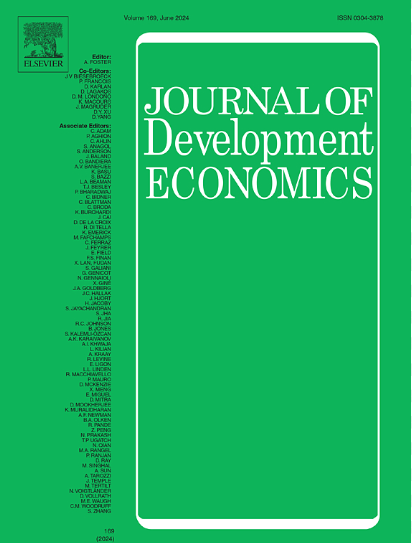Can SMS interventions increase vaccination? Evidence from the COVID-19 pandemic in Kenya
IF 5.1
1区 经济学
Q1 ECONOMICS
引用次数: 0
Abstract
Researchers, practitioners, and policymakers often view Short Messaging Service (SMS) interventions as quick and inexpensive tools to influence individual decisions. SMS text messaging is particularly attractive in countries where much of the population lives in remote areas but mobile phone technology is becoming increasingly widespread. In partnership with the Ministry of Health in Kenya, we sent a series of SMS messages—incorporating behavioral nudges and financial incentives—to encourage individuals overdue for their second COVID-19 vaccine dose to complete their two-dose primary series. Applying principles from behavioral economics, we conducted four experiments between July 2022 and January 2023, sending randomized SMS messages to 51,903 individuals encouraging them to complete their vaccination. We found no evidence that these messages, designed to nudge behavior or offer financial incentives, significantly increased vaccination completion rates. A follow-up phone survey with a subsample of 105 respondents revealed that, while 91% of people remembered receiving the message, 84% of the sample reported being either not worried or only a little worried about the virus. Our data suggest that, despite recipients recalling the specific SMS, a single message with less salient content may not be effective in improving health outcomes.
求助全文
约1分钟内获得全文
求助全文
来源期刊

Journal of Development Economics
ECONOMICS-
CiteScore
8.30
自引率
4.00%
发文量
126
审稿时长
72 days
期刊介绍:
The Journal of Development Economics publishes papers relating to all aspects of economic development - from immediate policy concerns to structural problems of underdevelopment. The emphasis is on quantitative or analytical work, which is relevant as well as intellectually stimulating.
 求助内容:
求助内容: 应助结果提醒方式:
应助结果提醒方式:


